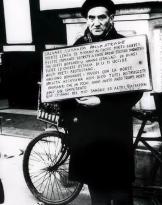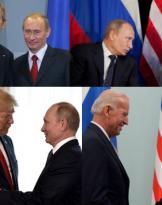The phenomenon of "globalization" has undoubtedly brought great and multiple benefits in the most varied sectors of human activities, from commercial to technological, from professional to recreational. However, terrorist and criminal activities have also been "globalized", taking full advantage of all the new possibilities of a world that has suddenly become more usable. We have gradually formed and consolidated new structures / organizations, temporary or permanent, whose activities turn out to be a real threat that can take many forms and operate through the most diverse, and previously unimaginable, modalities. Thus the doctrinal concept of "Hybrid Threats" was born, that is to say of threats "put in place by adversaries who possess the ability to simultaneously employ both conventional and unconventional means, adapting them in order to achieve their objectives".
The threats are hybrid because their proponents, although very different from each other, are able to combine their forces and their operational capabilities to achieve their respective objectives, not necessarily common. Among these proponents are full criminals, terrorists, pirates, bandits and common criminals. Emblematic cases that highlight this mixture of characters turn out to be those kidnappings and kidnappings of tourists (which take place in well-known and advised countries) where you do not understand well "who is doing what", in the sense that who abducts is not who holds the victims and it is not even those who ask for the ransom! Moreover, the unfortunate tourists are then sold or bartered, even on several occasions, among the different types of characters in exchange for drugs, money, weapons, ammunition, explosives, food, seeds, equipment, electronic equipment, various equipment, precious stones, vehicles, fuels ... depending on the needs of the moment of those who buy and sell.
 The first to perceive the new phenomenon were two Chinese officers, col. Qiao Liang and col. Wang Xiangsui, who had identified with their analysis new forms of war (Liang-Xiangsui doctrine or "asymmetric warfare doctrine without limits between terrorism and globalization" - 1999), defining the concept of "non-military wars" and highlighting new forms of threat due to unconventional conflict ... with the consequent need to redefine the threat. Subsequently, the concept was taken up and deepened by both the NATO doctrine ("New Hybrid Threat" doctrine - 2010) and the Russian general Valery Gerasimov (Gerasimov doctrine - 2013) thus confirming the presence of new forms of instability and new sources of danger due to a threat to be defined definitely of a "hybrid" nature, hybrid both for the operating methods with which it can be demonstrated and for the different subjects that can implement it.
The first to perceive the new phenomenon were two Chinese officers, col. Qiao Liang and col. Wang Xiangsui, who had identified with their analysis new forms of war (Liang-Xiangsui doctrine or "asymmetric warfare doctrine without limits between terrorism and globalization" - 1999), defining the concept of "non-military wars" and highlighting new forms of threat due to unconventional conflict ... with the consequent need to redefine the threat. Subsequently, the concept was taken up and deepened by both the NATO doctrine ("New Hybrid Threat" doctrine - 2010) and the Russian general Valery Gerasimov (Gerasimov doctrine - 2013) thus confirming the presence of new forms of instability and new sources of danger due to a threat to be defined definitely of a "hybrid" nature, hybrid both for the operating methods with which it can be demonstrated and for the different subjects that can implement it.
The hybrid threat, ultimately, can generate dynamic armed conflict, asymmetric, unconventional, unpredictable in their manifestation and difficult to prevent. It is also necessary to underline the difference, very well illustrated in the Liang-Xiangsui doctrine, that exists between "military operations other than war" and "non-military operations of war". The first concept can be understood as the substantial redefinition of those "military operations conducted in a context without a state of war", then outside of an officially declared war or conflict (and when is a war declared today? !). For further clarity, it is necessary to contextualize this concept within the framework of the provisions of the 5 article of the NATO Treaty which establishes the criterion of joint competition for the defense of the NATO community (or one of its Nation) by providing, in front of an attack coming from from the outside of the Atlantic Alliance, an automatic and immediate defensive reaction, or war. Incidentally, to indicate the "Non-war military operations", we speak of "non-article 5 Operations", or of all those military operations that take place in "non-war" time, in a time of tension or crisis, and usually referred to as "Crisis Response Operations" (CROs) or "Non article five CROs".
 The second concept of "Non-military operations of war", instead, refers to activities (in some countries considered as "acts of war") that can be managed by governments as well as by civil, private, non-governmental organizations and therefore, for the note, "non-military" and which are oriented to create various forms of destabilization in a specific country taken as an objective. These are activities and systems of various nature aimed, for example, to ensure the impunity of criminals and offenders, to ensure the trafficking of drugs, men and weapons, the manipulation of information, the misuse of humanitarian aid. , the political defense of alleged ethnic identities or the spread of political-religious theories aimed at supporting hostile ideologies.
The second concept of "Non-military operations of war", instead, refers to activities (in some countries considered as "acts of war") that can be managed by governments as well as by civil, private, non-governmental organizations and therefore, for the note, "non-military" and which are oriented to create various forms of destabilization in a specific country taken as an objective. These are activities and systems of various nature aimed, for example, to ensure the impunity of criminals and offenders, to ensure the trafficking of drugs, men and weapons, the manipulation of information, the misuse of humanitarian aid. , the political defense of alleged ethnic identities or the spread of political-religious theories aimed at supporting hostile ideologies.
Hybrid threats, permanently unstable situations, often uncertain political and diplomatic positions, the impossibility of being able to have the total annihilation of the opponent with the consequent impossibility of being able to have an "imposed peace" (but only a "negotiated peace", obviously never satisfactory!), the constant distancing of the objectives to be achieved and the often impossibility of achieving a hypothetical "final state" of armed conflicts, tend to make the conflicts themselves substantially permanent, with all that this entails both in economic terms than loss of life. These new aspects of the threat, added to the unpredictable evolution of conflicts, have inevitably changed the approach to the problem ... and among the major innovations is the growing use of the so-called "privatization of war and security" through companies / companies / private agencies which provide specialized personnel capable of dealing with uncertain and high-risk situations even in the most inhospitable, unstable, hostile and dangerous areas of the planet. These are those men and women who are commonly called "Contractor", or better "Private Military Contractor" (PMC), and who are managed by the now very numerous Private Military Firms (PMFs). These companies are private as they are "non-public entities" financed, generally but not necessarily, by private individuals and which employ civilian personnel in all respects, even if most of their personnel are of military or police origin. in order to guarantee a possible greater capacity for procedural integration with other military, paramilitary or police forces.
 The use of "private services of a military nature" has significantly expanded worldwide over the last fifteen years even as a result of the budget cuts inflicted by many nations on their armed forces, "called to do more and more with less and less ", and the consequent" Military Outsourcing ", ie the possibility of being able to contract / subcontract a certain number of" services to support the armed forces "employed in the most disparate operating theaters.
The use of "private services of a military nature" has significantly expanded worldwide over the last fifteen years even as a result of the budget cuts inflicted by many nations on their armed forces, "called to do more and more with less and less ", and the consequent" Military Outsourcing ", ie the possibility of being able to contract / subcontract a certain number of" services to support the armed forces "employed in the most disparate operating theaters.
From an initial support eminently logistic has passed, with the passage of time, to a very wide range of specifically military and security activities that can now come to include real combat actions. There is no longer a marked difference between the services provided by a PMC (Private Military Company / Firm), initially oriented only to activities of a purely military nature, and those provided by a PSC (Private Security Company), initially oriented to guarantee only activities safety. Indeed, this difference has gradually disappeared, leaving space for a single type of company able to provide a wide range of services (as we will see later) and defined with the acronym PMSC (Private Military and Security Company). However, for a purely formal question, the definitions in the two main official documents drawn up by the International Community concerning the subject remain: the cited acronym PMSCs (Private Military and Security Companies) within the "Document of Montreux "(Of the 2008) and the acronym PSCs (Private Security Companies - Private Security Service Providers) within the" International Code of Conduct for the Providers of Private Security Services "(International Code of Conduct for Private Security Services Providers - ICoC - of the 2010). However, it is still possible to find different acronyms and acronyms as there have been several classification attempts to clarify the various services provided to the possible user. The main types of classification are cited: differentiation between generic supplies and specific services (Dr. Doug Brooks), between the means employed and the objects to be protected (Dr. Chris Kinsey), including support, advice and military activity ( Dr. Peter Singer), between organizational structure and performance (Dr. Stefano Ruzza) or according to the type of contract stipulated (Prof. Deborah Avant).
 From the 2008, in addition to what has been said, the privatization of the maritime safety wanted by the main Maritime Insurance Companies has also taken shape, strongly concerned by the exponential recrudescence of the increasingly violent phenomenon of piracy. Therefore, "Private Maritime Security Companies" (the same name of the Military-Security !!!) were also established with their "maritime Contractor", defined as "PCASP" (Privately Contracted Armed Security Personnel) , generally operating in pre-established intervention groups called "ESTs" (Embarked Security Teams) or "AMSTs" (Armed Marine Security Teams), and whose specific "operational behaviors" are regulated by additional main 6 Circulars (Circ. MSC 1404, 1405 , 1406, 1408, 1443, FAL.1 / Circ. 2) issued by the Maritime Security Committee (MSC) of the IMO (International Maritime Organization). Incidentally, i Contractor seafarers have a double possibility of employment: either on board ships to be protected or on board specially designed and armed fast boats, called "DEVs" (Dedicated Escort Vessels), which guarantee an "armed escort" in certain stretches previously identified and considered dangerous for the transit of merchant ships.
From the 2008, in addition to what has been said, the privatization of the maritime safety wanted by the main Maritime Insurance Companies has also taken shape, strongly concerned by the exponential recrudescence of the increasingly violent phenomenon of piracy. Therefore, "Private Maritime Security Companies" (the same name of the Military-Security !!!) were also established with their "maritime Contractor", defined as "PCASP" (Privately Contracted Armed Security Personnel) , generally operating in pre-established intervention groups called "ESTs" (Embarked Security Teams) or "AMSTs" (Armed Marine Security Teams), and whose specific "operational behaviors" are regulated by additional main 6 Circulars (Circ. MSC 1404, 1405 , 1406, 1408, 1443, FAL.1 / Circ. 2) issued by the Maritime Security Committee (MSC) of the IMO (International Maritime Organization). Incidentally, i Contractor seafarers have a double possibility of employment: either on board ships to be protected or on board specially designed and armed fast boats, called "DEVs" (Dedicated Escort Vessels), which guarantee an "armed escort" in certain stretches previously identified and considered dangerous for the transit of merchant ships.
The services provided by a generic PMSC (Military & Security) of large dimensions can be decidedly considerable, both in terms of quantity and capacity, and involve the most diverse activities: consultancy, training, operational planning, logistical support, tactical support, communications , cyber-defense, armed escorts, release of hostages, protection of personalities, protection of road convoys, protection of operational forces, protection of sensitive sites, refineries, power plants, factories and various artifacts, piloting of helicopters and drones, intelligence, reconnaissance, patrol, surveillance and control. In this regard, the international community had already at the time warned of the need for international humanitarian law and fundamental human rights to be fully protected in the various activities carried out by the Contractor. Consequently, a considerable number of documents, provisions, suggestions and initiatives has been produced, the examination of which, however boring, would be too complex and dispersed in this context. It should however be stressed that these documents deal with the use of force, the use of weapons and the "legal status" of Contractor.

On the merit, it clearly emerges that the figure of the Contractor is not similar to the figure of the mercenary and that also its "status" (also hybrid!) varies with its "role" assumed in the performance of its service (or as civil, armed civil, civil fighter, civil aggregated to a military force, a fighter inserted in a military group). Decisive factor for the use of Contractor as established by the aforementioned document of Montreux, it appears to be the compliance with the obligations deriving from International Humanitarian Law by the States involved, or the State in which the Company of Contractor (which mainly determines the operational possibilities and legal constraints), by the State that employs i Contractor and from the State in which i Contractor they carry out their activity.
The adhesion of a company to the aforementioned "International Code of Conduct for the Providers of Private Security Services" (ICoC) guarantees / certifies that its Contractor operate in full compliance with International Humanitarian Law and fundamental human rights. In essence, the adhesion to the Document of Montreux and the adhesion to the ICoC by a Company of Contractor guarantee the same a sort of "quality stamp" in full compliance with the laws of the market.
Almost all the legal offices of PMSCs are in any case in those countries whose laws authorize civilians to use war weapons because, in certain operational contexts and regardless of their role, only the possibility of using an automatic weapon with a high speed of shooting, even if only for defense and in case of extreme emergency, can guarantee an operator not to succumb and return home safe and sound.
Rev. Admiral Marco Bandioli
(photo: web)












